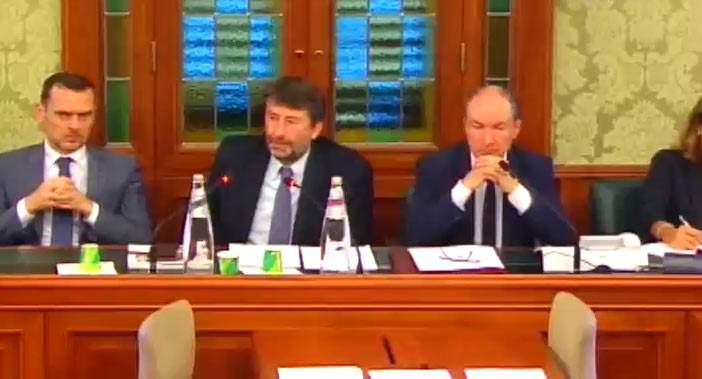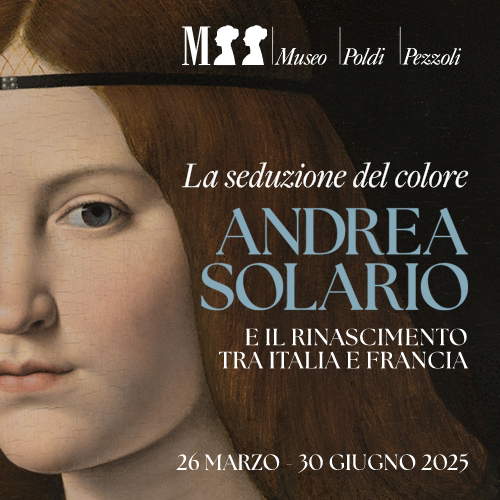Franceschini's priorities: personnel, publishing law, and widespread tourism
Today, before the joint culture committees of the House and Senate, the minister of cultural heritage, Dario Franceschini, answered questions raised by parliamentarians during a hearing last Oct. 2. Several topics were covered by the minister in response to questions put to him at the last session. They began with archives: “the archives sector,” Franceschini said, “is in a problematic situation both because of a personnel issue and because of a location issue: many bodies that by law have to confer kilometers of archives no longer have places where they can put the materials that it is obligatory by law to pour into the archives. Reasoning must be done on this on a program that lasts at least for the next ten years.”
During the session, Franceschini went on to identify a law on publishing as one of the goals of his term: a law that “modeled on the law of cinema,” he said, “would help and support the entire book and reading industry: if you believe, as you rightly do, that a film is such an important cultural product that you need to help with the cinema law the cinema exhibitors, the distributors, the producers, the authors, then the book at least is as important as the film, and I think you should think about how to help the whole industry chain. In this there is also the issue of school libraries, which should be strengthened.”
On the thorny issue of personnel, “quota 100, turnover, and already past seniority makes a lot of positions vacant, ranging from theater wardens to the most senior professionals in the ministry,” the minister explained. “This is the priority, and I am already trying to take some first steps with this year’s budget law, as Bonisoli tried in the previous term. The machine without those who drive it does not work.”
Regarding the issue ofautonomy of institutes, the previous reform had not eliminated it but, Franceschini pointed out, boards of directors had been eliminated, which the current minister believes instead “are one of the conditions for guaranteeing autonomy,” otherwise, he said, “everything is centralized: the strategic decisions of individual museums are no longer taken within the individual museum but are inevitably taken by the directorate general or the ministry. I think this should be restored.” On the suppression of the autonomy of the Appia Antica Park, the National Etruscan Museum of Villa Giulia and the Galleria dell’Accademia in Florence, Franceschini explained that it had been decided “for reasons of recovering second-rank executives to be used in other functions in the ministry: I am trying that those functions be addressed with executive roles without arriving at the suppression of the three institutes, which are of extraordinary importance. I hope to be able to solve the problem of managers while safeguarding the autonomy of these three institutes.”
On the subject of cultural diplomacy, Franceschini says it should be strengthened: “It is a great strength of our country in international diplomatic relations. Accompany the work of our diplomacy with specific action in the field of cultural offerings.” And also on this topic, regarding loans, Franceschini made his position explicit: "I keep in mind a point that inevitably truncates all discussions. There is a threshold in front of which politics must stop and in front of which I will always stop: the scientific assessment of whether or not this work is transportable, which only experts (and we have many) can make. In front of this opinion I stop, even if there is an international report. So I also did for theVitruvian Man."
Regarding the problems arising from mass tourism, Franceschini said that “tourism on small municipalities is no longer just an opportunity, it is a need. Either we manage to sell the smaller places (villages, walks, natural beauty, small towns) to the world, or we can’t handle the impact of growing tourism. Either we work to multiply international tourist attractors, or we don’t make it. Italy from this point of view has endless possibilities, of places that can become attractors of intelligent, educated, respectful, high-level tourism. This is really a great challenge.”
Finally, a passage on large ships: “I think there should be no hesitation,” Franceschini concluded. “We have nothing against big ship tourism, but big ships cannot pass where they pass today. The whole world is watching us, Unesco has started procedures, anyone sitting there is afraid to see these twenty-story giants passing in front of St. Mark’s, there are various solutions that have been studied. I said it going to Venice and I want to repeat it here, even though it is not just my responsibility, but it crosses those of other ministries: I am committed that by the end of my mandate the problem of the passage of ships in front of Giudecca and St. Mark’s will be definitively solved.”
Pictured: Dario Franceschini (second from left) at the hearing today.
 |
| Franceschini's priorities: personnel, publishing law, and widespread tourism |
Warning: the translation into English of the original Italian article was created using automatic tools. We undertake to review all articles, but we do not guarantee the total absence of inaccuracies in the translation due to the program. You can find the original by clicking on the ITA button. If you find any mistake,please contact us.



























